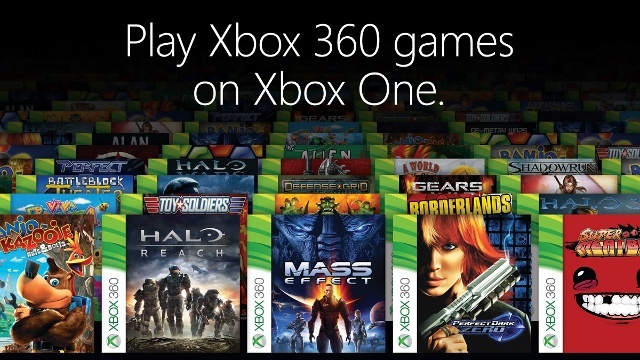It’s been about two months since Microsoft announced that the Xbox One would support backwards compatibility for its current gen platform. Gamers have been able to vote for what games they want to see get support for it, and here is the most recent tally of the top ten:
- Call of Duty: Black Ops II – 91,289 votes
- Red Dead Redemption – 85,986 votes
- Skyrim – 81,712 votes
- Call of Duty: Modern Warfare 2 – 73,165 votes
- Halo: Reach – 71,390 votes
- Gears of War 3 – 57,212 votes
- Fallout 3 – 56,531 votes
- Call of Duty 4: Modern Warfare – 53,513 votes
- Call of Duty: Modern Warfare 3 – 47,528 votes
- Mass Effect 3 – 46,164 votes
What has become clear over the past few months is that backwards compatibility is a big part of Microsoft’s strategy to make Xbox One a gamer’s platform of choice going forward. It’s certainly a strategy that resonates with gamers like myself, who have been at this awhile with a library full of games that has been collecting dust since the new generation began.
I grew up playing games on the PS1 and PS2, and it goes without saying that old hardware, memory cards and controllers simply break down at some point, so backwards compatibility is a feature that seems like a no-brainer to me. If successful, this feature could end up having huge ramifications.
Backwards compatibility is a big part of Microsoft’s strategy to make Xbox One a gamer’s platform of choice going forward.
Microsoft appears to be establishing a trend on their digital pre-orders that is likely to cause a ripple effect on the value of older games in the digital marketplace. Fallout 4, Just Cause 3 and Rainbow Six: Siege will all be coming with free copies of earlier games in their respective franchises that will be backwards compatible on Xbox One.
As it stands, Xbox Live, PSN, and Steam tend to sell most of their games at full price for years after the initial release date. Although digital sales cut these prices down considerably, a lot of these games look like they will inevitably be offered up as freebies by Microsoft for pre-ordering their respective sequels.
The question then becomes – how long will consumers be willing to pay for games on their platform of choice that they know will become free on another at some point?
That’s a hard question to answer. Sony and Valve will have to do something about it eventually. PlayStation Now hasn’t taken off at all and Steam sales, though nice, have not been nearly as consumer-friendly as they have in the past (see Grand Theft Auto V).
What can be said for sure is that tastes and genre preferences vary from gamer to gamer, so every AAA game will be bought on Day 1 by someone, somewhere in the world. But inevitably some people will get curious about what they don’t know, or a killer presentation at a major conference will create fans in an instant (see Fallout 4 at E3 2015), thus raising the interest in a particular franchise considerably. However, the hesitation to invest hard-earned dollars will always remain a barrier.
By offering up free copies of older games with little value, it seems like a logical conclusion that consumers would be more comfortable dropping $60 on an upcoming game in a franchise that they’ve had the opportunity to get their hands on.
Microsoft may have just found a way to shake the foundation of how we buy games.








Published: Aug 13, 2015 11:45 am